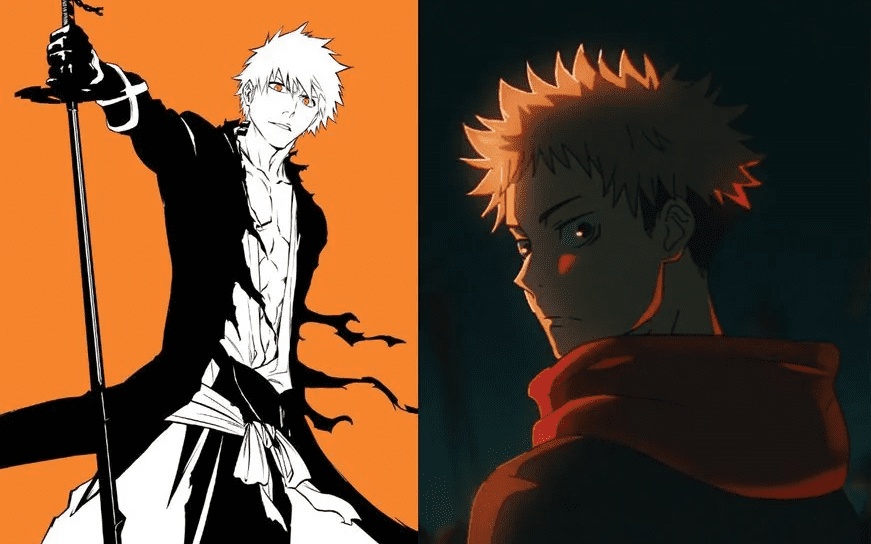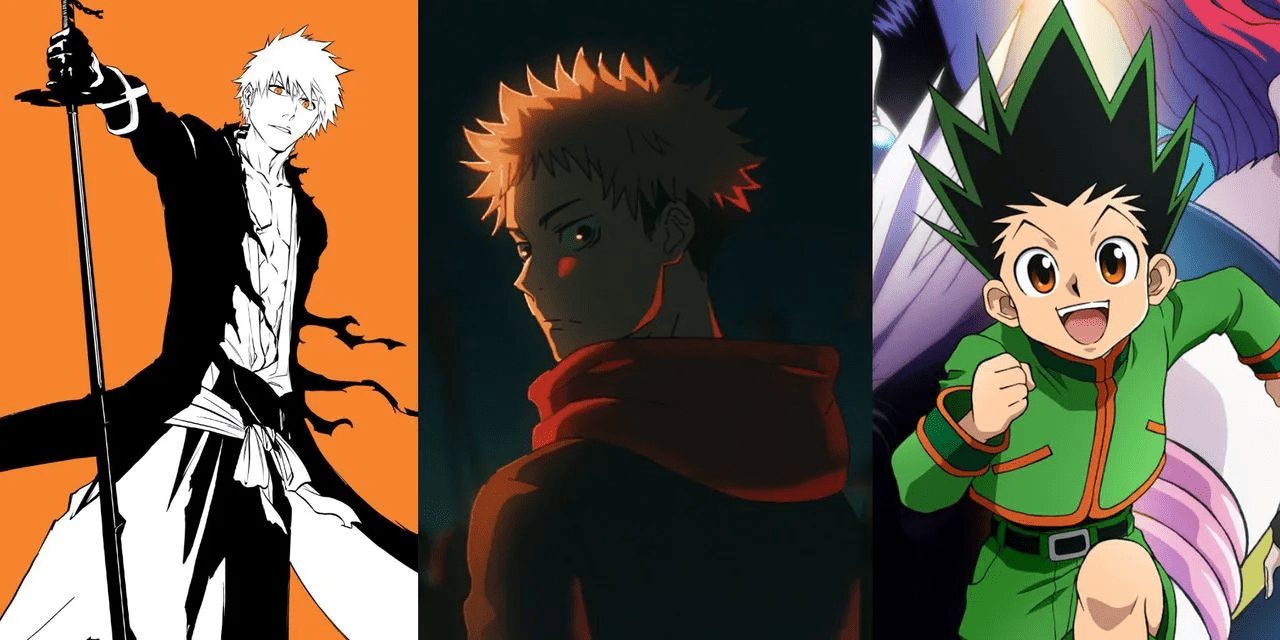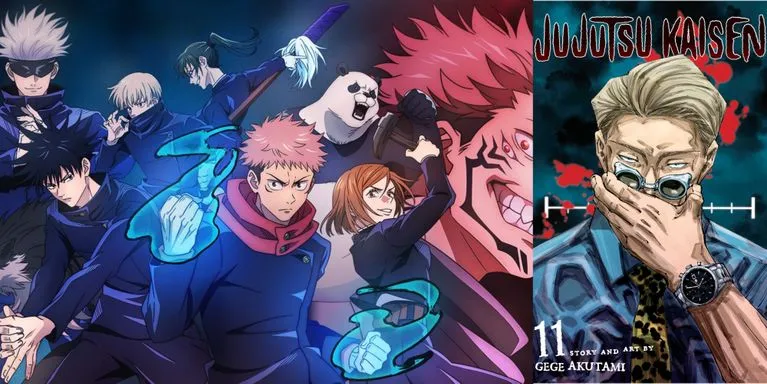
This roundtable discussion has highlighted how authors like Kubo have influenced Akutami, as well as how both have drawn inspiration from Yoshihiro Togashi – the mastermind behind YuYu Hakusho and Hunter x Hunter. It’s fascinating to see these interwoven influences, especially during the cheerful exchanges that took place when Akutami and Kubo met a few years ago.
Does Jujutsu Kaisen Have Unique Inspirations?
Some critics have likened Jujutsu Kaisen to a derivative work, but the truth is that the anime has created its distinct identity. Even with clear inspirations, the narrative of Jujutsu Kaisen never feels like a mere copy. Akutami himself has expressed that creators should strive to find their unique voice rather than simply mimic others.

Gege Akutami stated: “I view people like Kubo-sensei and Tatsuki Fujimoto-sensei of Chainsaw Man as having a strong foundation… The creativity of a work is a product of one’s skills and inherent talent. I will only be concerned if I find myself copying others. That is why I strive to innovate in order to avoid such pitfalls. I have always appreciated Bleach, but I know that imitating it would lead to failure because it is too iconic. Therefore, whenever I hear someone say that my work reminds them of Bleach, I feel an immense pressure to respond with ‘Yeah, that’s true, I guess… but…’
What Anime Does Jujutsu Kaisen Pay Homage To?
Jujutsu Kaisen not only draws from its source material but also transforms it into a unique art form in its second season. Despite various critiques during its production, the anime has emerged as one of the most significant highlights of the year, a celebration for fans of this genre.
In the Shibuya Incident arc, several references to popular mecha anime, such as Evangelion and Gurren Lagann, can be found. If there were no substantial technical issues with the TV adaptation, it would have been flawless.
Moreover, references to My Hero Academia, Bleach, Hunter x Hunter, Naruto, Rurouni Kenshin, and even JoJo’s Bizarre Adventure are apparent, creating a festival of creative influences. This doesn’t diminish respect for other works in the anime world; in chapter 37, there’s even a fight scene inspired by the film The Raid 2.
While chapter 31 may not fully capture it, the finale of the season serves as a profound tribute to Evangelion, featuring familiar voices like Shinji Ikari, voiced by Megumi Ogata, echoing in Yuta’s character. Even the higher-ups have dialogues that hint at Gendo’s interactions with the Seele organization in Eva.
Conclusion: The Shonen Formula of Jujutsu Kaisen

Shonen is a genre that has evolved significantly over time, often incorporating elements that resonate with audiences. Even in the most comedic narratives, there are underlying themes of growth and maturity.
In Jujutsu Kaisen, it’s easy to identify the “echoes” of other popular shonen. For instance, the three main characters evoke feelings reminiscent of Naruto, Sasuke, and Sakura. Then, Gojo seems similar to Kakashi after the confrontation with the villain in Hunter x Hunter. Moreover, the fight scenes bring to mind elements of Bleach and YuYu Hakusho.
However, the most intriguing aspect is that these inspirations are not merely superficial. The character dynamics are deeply entrenched in other anime and manga, and this is merely one facet of the larger body of work that the anime draws from. This entire homage makes Jujutsu Kaisen a shonen tailored for an older audience, thriving in this genre.
Jujutsu Kaisen stands as a significant milestone in the shonen landscape. As it continues to rise, the anime creates narratives that celebrate both homage and innovation, with creators navigating the thin line between inspiration and originality in this genre.





















